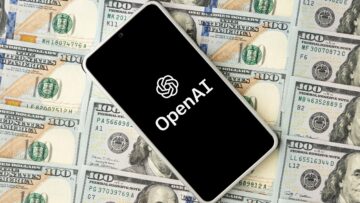
Worldcoin, the cryptocurrency startup co-founded by OpenAI CEO Sam Altman, has ceased its Orb-verification services in India, Brazil, and France.
This decision comes after the company’s rapid global expansion, raising questions about regulatory compliance and public safety issues associated with its unique identity verification technology.
Also read: Worldcoin’s Biometric Investment Plummets 50% as Data Concerns Broaden
Worldcoin’s sudden retreat from major markets
Worldcoin’s initiative to alter identity verification through its Orb technology has encountered significant challenges. This Orb, a unique, five-pound helmet-shaped device designed for eyeball scanning, has been a topic of global interest since its multi-city tour. However, the company’s sudden decision to halt operations in India, Brazil, and France raises questions about the regulatory and operational hurdles it might be encountering.
Overseeing Worldcoin’s development, Tools for Humanity stated that Orb’s deployment was initially planned as “limited time access” in various markets, highlighting the company’s focus on global regulatory norms. Nonetheless, this sudden withdrawal, especially after the widespread attention and engagement the Orb received, prompts scrutiny over the specific regulatory hurdles that might have influenced this decision.
Regulatory roadblocks and market withdrawals
In India, Worldcoin ceased offline Orb verifications and biometric identity-based user onboarding 3–4 months ago, as per Moneycontrol. This decision followed an overwhelming response from the public, with many queuing up at designated locations to register and earn free Worldcoin (WLD) tokens. This enthusiasm, however, led to operational challenges, prompting the company to reassess its strategy in the Indian market.
🚨 Scoop: Sam Altman’s Worldcoin discontinues offline Orb verification services in India
Sam Altman’s crypto project Worldcoin has stopped offline ‘Orb’ verifications and biometric identity-based user onboarding in India.
This was in the wake of huge number of people queuing up…
— Chandra R. Srikanth (@chandrarsrikant) December 21, 2023
The situation was further complicated by reports from Kenya, where a witness alleged eye problems after an iris scan by the Orb. This testimony, presented to the Kenyan Parliamentary Committee, raised alarms about the safety of Worldcoin’s verification methods. Responding to these concerns, Kenya’s interior minister, Kithure Kindiki, suspended all Worldcoin activities. This pause was necessary to investigate the potential risks to public safety, especially given that over 350,000 Kenyans had already registered with the service.
“After the scan, my eyes started becoming watery. I have been on prescribed glasses ever since that time. I don’t know if it is a coincidence or if it is the Worldcoin scan.
Worldcoin’s global impact and user concerns
Launched on July 24, the crypto project focused on digital identification achieved notable milestones and faced significant controversies. In May, it raised $115 million in funding from investors like Andreessen Horowitz, Bain Capital Crypto, and Distributed Global. Additionally, during its beta phase, Worldcoin managed to onboard over 2 million users, a figure that, on the surface, appears impressive.
Nevertheless, this success was met with skepticism and controversy. A study conducted by the MIT Technology Review raised serious concerns regarding the onboarding practices for the first million users. The investigation alleged that these practices involved deceptive tactics, cash incentives, and the exploitation of workers, particularly in developing countries.
Moreover, the project faced criticism from the broader crypto community for several reasons. Key among these are concerns regarding the security of users’ biometric data and more general privacy issues. These concerns have overshadowed the project’s notable user growth and funding achievements.
WLD token analysis
Despite recent developments, Worldcoin’s value rose by 6.60% to $3.69 at the time of writing, showing market resilience. In a contrasting trend, the trading volume of WLD cryptocurrency fell by 12.26% in the past 24 hours, reaching $200.298 million. This mixed financial response mirrors the uncertainty surrounding the project’s future.
- SEO Powered Content & PR Distribution. Get Amplified Today.
- PlatoData.Network Vertical Generative Ai. Empower Yourself. Access Here.
- PlatoAiStream. Web3 Intelligence. Knowledge Amplified. Access Here.
- PlatoESG. Carbon, CleanTech, Energy, Environment, Solar, Waste Management. Access Here.
- PlatoHealth. Biotech and Clinical Trials Intelligence. Access Here.
- Source: https://metanews.com/worldcoins-orb-verification-halt-in-india-brazil-and-france-raises-regulatory-concerns/
- :has
- :is
- :where
- $3
- $UP
- 000
- 12
- 24
- 350
- 7
- a
- About
- achieved
- achievements
- activities
- Additionally
- After
- ago
- All
- alleged
- already
- among
- an
- and
- Andreessen
- Andreessen Horowitz
- appears
- ARE
- AS
- associated
- At
- attention
- Bain
- Bain Capital
- Bain Capital Crypto
- BE
- becoming
- been
- beta
- biometric
- Brazil
- broader
- by
- capital
- Cash
- ceo
- challenges
- coincidence
- comes
- committee
- community
- company
- Company’s
- compliance
- complicated
- Concerns
- conducted
- controversy
- countries
- criticism
- crypto
- crypto community
- cryptocurrency
- data
- decision
- deployment
- designated
- designed
- developing
- Developing Countries
- Development
- developments
- device
- digital
- distributed
- Dont
- during
- earn
- encountering
- engagement
- enthusiasm
- especially
- EVER
- expansion
- exploitation
- eye
- Eyes
- faced
- Figure
- financial
- First
- Focus
- focused
- followed
- For
- France
- Free
- from
- funding
- further
- future
- General
- given
- glasses
- Global
- global expansion
- global interest
- Growth
- had
- Have
- highlighting
- Horowitz
- HOURS
- However
- HTML
- HTTPS
- huge
- Humanity
- Hurdles
- i
- Identification
- Identity
- Identity Verification
- if
- Impact
- impressive
- in
- Incentives
- india
- Indian
- influenced
- initially
- Initiative
- interest
- interior
- investigate
- investigation
- investment
- Investors
- involved
- issues
- IT
- ITS
- July
- kenya
- Key
- Know
- Led
- like
- locations
- major
- managed
- many
- Market
- Markets
- May..
- met
- methods
- might
- Milestones
- million
- minister
- MIT
- mixed
- months
- more
- my
- Nations
- necessary
- norms
- notable
- number
- of
- offline
- on
- Onboard
- Onboarding
- OpenAI
- operational
- Operations
- or
- over
- overwhelming
- Parliamentary
- particularly
- past
- pause
- People
- per
- phase
- planned
- plato
- Plato Data Intelligence
- PlatoData
- plummets
- potential
- practices
- presented
- privacy
- problems
- project
- projects
- prompts
- public
- Questions
- R
- raised
- raises
- raising
- rapid
- reaching
- Read
- reasons
- received
- recent
- regarding
- register
- registered
- regulatory
- Regulatory Compliance
- Reports
- resilience
- responding
- response
- Retreat
- review
- risks
- roadblocks
- ROSE
- s
- Safety
- Sam
- scan
- scanning
- scoop
- scrutiny
- security
- serious
- service
- Services
- several
- showing
- significant
- since
- situation
- Skepticism
- specific
- started
- startup
- stated
- stopped
- Stops
- Strategy
- success
- sudden
- Surface
- Surrounding
- suspended
- tactics
- Technology
- that
- The
- the security
- These
- this
- Through
- time
- to
- token
- Tokens
- tools
- topic
- Tour
- Trading
- trading volume
- Trend
- true
- Uncertainty
- unique
- User
- users
- various
- Verification
- verifications
- volume
- Wake
- was
- widespread
- with
- withdrawal
- witness
- workers
- writing
- zephyrnet













